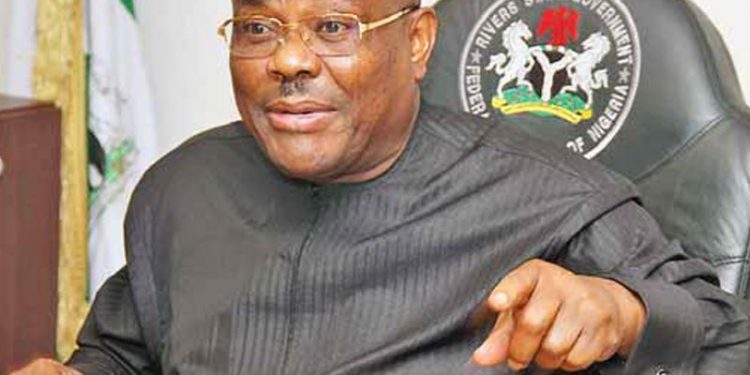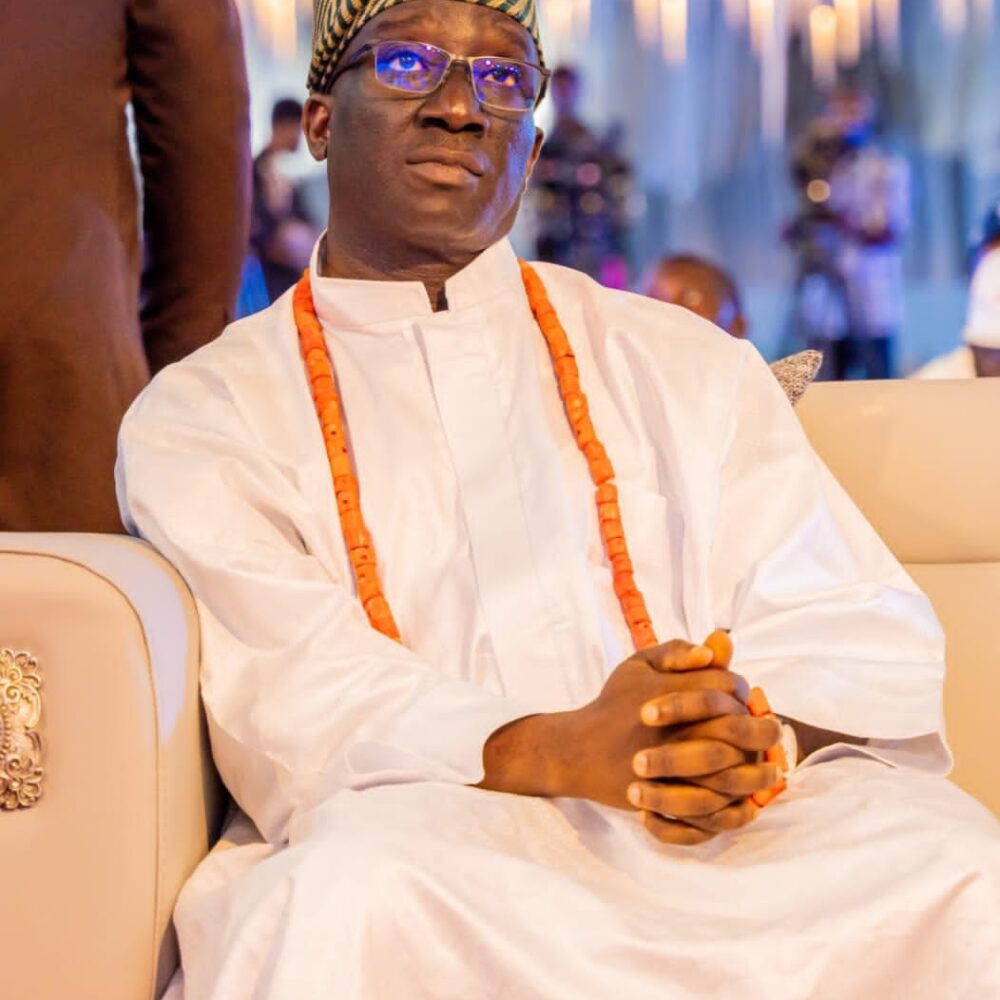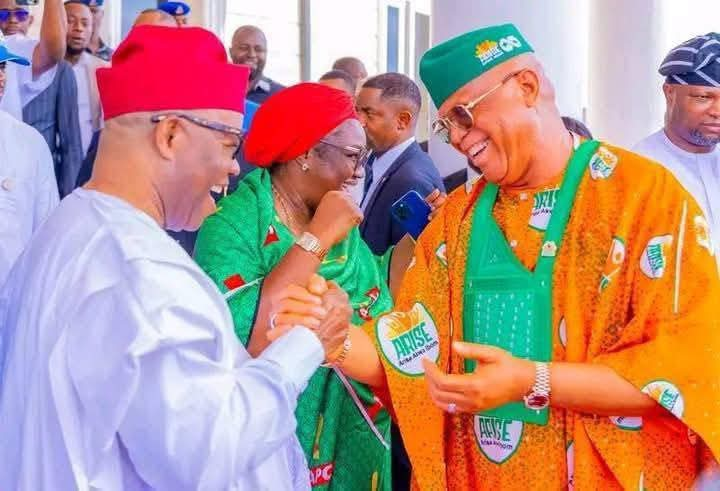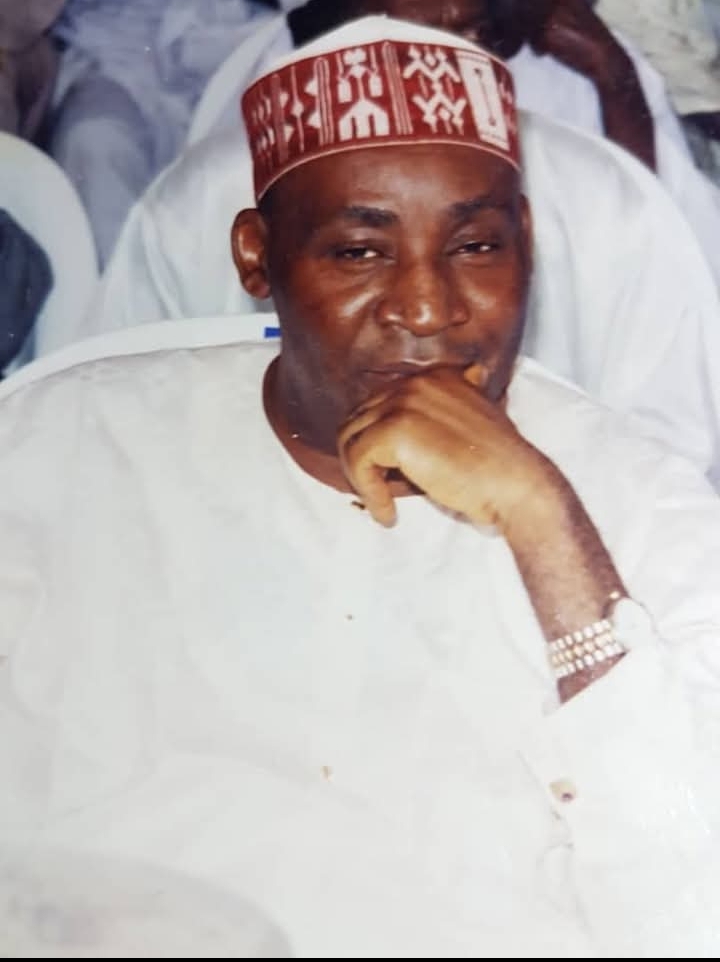In what looks like a carefully guided, fiercely forceful, and well-oiled campaign, there has been determined, deliberate efforts with the mandate to “pull down” and rubbish the person and works of the Minister of the Federal Capital Territory, Nyesom Wike. The one-line objective whose mandate is to de-market and make him unpopular, has remained dogged from timing and approach in achieving political mileage before, during, and after the “all important” National Executive Committee meeting of the Peoples Democratic Party, which held in Abuja. The unabated advocacy seems to have assumed a life of its own as anything, everything humanly possible is exploited to get the projected result.
So, in the past weeks, the media has been awash with opinions, analysis, and commentaries geared towards “pulling down” Wike. In most cases, admixture of jaundiced, unconvincing, distorted, and contrived stories and reports are rolled out. Arguably, as a result of the consistency of these attacks and innuendos, Wike has become the most trending name on the regular and social media. Unfortunately, the deluge of theatrical narratives and juvenile falsehoods released by some jejune, puerile, and out-of-trend leaders, and imaginary, comical, and faceless groups has defied every logic of reasonable thinking and moral standard.
To a large extent, the campaign seems to be the most attractive “cash cow” in the polity. With the speed at which people join the fray may have confirmed talks that pecuniary benefit is the driving force and not conviction. There are stories that an embattled Governor is allegedly bank-rolling the campaign, which has some double-faced personalities, and lawmakers with history of mercenary credentials as the “arrow-heads.” The modus operandi is to daily make, and sometimes invent disparaging statements against Wike to convey a “we-are-working” message to their pay master.
Despite the velocity of incongruous conspiracies, insidious criticisms, and consistent visibility in the media, the campaign is yet to achieve it’s purpose of soiling Wike’s credibility and crashing his political stock-value. The viciously wicked desire of making him lose track of realizing President Tinubu’s “Renewed Hope” agenda in FCT is not yielding results. Regardless the fiscal, physical, and human exertions, the table has not turned against the Ikwerre-born politician. Messages used are regurgitation of old, same and stale tales. Conveyers have believability and acceptability baggages. The concomitant result of this is continued failure.
Surprisingly, Wike is unruffled and unperturbed about the gale of attacks against him by political adversaries across the country, particularly from his home state. Like a battle-tested and war-veteran victorious general, he has stood up to every challenge. Often derided and deluded by political opponents who variously describe him as boastful, rabble-rouser, and crude but he has always shown, at the end of every battle that he is miles ahead of them. Not minding the coalition of forces, depth of controversies, and deep-seated animosity against him, Wike emerges triumphant. The ease, simplicity, and calmness he wins usually confounds dispassionate Nigerians, apolitical chroniclers of events, and objective opponents. How he has being able to combine these battles with the responsibilities of administering the FCT will make resourceful studies in political brinkmanship, hands-on leadership, and purposeful governance.
That his name featured on Tinubu’s ministerial nominees-list became subject of discourse among Nigerians. Some PDP members who still harbour the pains of losing the last presidential election which they attribute to “Wike’s intransigence” appeared worse hit. That he was deployed to the sought-after and heavily-coveted FCT generated bigger discourse within the polity. To some who see the portfolio as “birth right” largely due to unbroken appointments of their “sons” as successive ministers, Wike’s choice is classified an “anomaly and aberration.” Some members of the ruling All Progressives Congress, APC, keeps wondering why a prominent member of an opposition political party is given such juicy and sensitive position. To some PDP faithful, his appointment portends danger for the party, and it’s continued relevance in Nigeria’s politics.
Somehow, the writer is flummoxed about such loss of historical memory among many Nigerians, particularly “celebrated” columnists, politicians, and analysts. Could it be deliberate falsehood, mischievous misinformation or early stages of senility? That Tinubu, who upon declaration as president-elect promised to run “a government of national competence” went ahead to name Wike a member of his federal executive council is not new. Obasanjo, in 1999 did same in his “government of national unity.” He appointed leading opposition members into his cabinet. Late Chief Vincent Ogboluafor, prominent member of the All Peoples Party; which later became All Nigeria Peoples Party became Minister of Economic Affairs (later Special Duties); Late Senator Mahmud Waziri, who was a senior member of APP (ANPP) was named Presidential Adviser on Inter-Party Relations; Late Chief Bola Ige of the Alliance for Democracy was Minister for Power (later Justice). Like Obasanjo did in 1999, Tinubu replicated by enlisting people with requisite competencies and proven capacities into his government. In achieving this, party affiliation and political lineage took back stage.
Many Nigerians believed that between 2015 and 2023, many of the ministers in Buhari’s administration had low ratings in terms of service delivery in their respective areas of jurisdiction. However, Mohammed Musa Bello, immediate past FCT Minister may be in strong contention for the least performing minister award. Under his watch, the FCT experienced muted growth. The satellite towns were worse off. Lack of vision and negative political will largely contributed to the gargantuan infrastructural decrepit, inept bureaucracy, insecurity, and societal challenges that envelope the FCT. Some residents tend to believe that given his style of administration and body language, he may have exited as the worst occupier of that office.
Aware of the strategic position of Abuja in Africa’s leadership, and conscious of the need to make the city a befitting capital, Tinubu decided to do the right thing by posting Wike to the FCT. Also, given the glaring infrastructure deficit and multi-sectoral development challenges in Abuja, Tinubu may have settled for Wike, under whose tenure as Governor transformed Rivers to a modern, uniquely beautiful, and enticing state. Somehow,
the gregarious, sagacious, and indomitable spirit of Wike to assignments and relationship may have further worked in his favour. As the capital of Africa’s most-populous country, Abuja in dire need of transformation needed someone with experience and exposure to bring life to the city-centre and the satellite towns. That Wike ticks all the boxes is not in doubt. At every position; Local Government Chairman, Chief of Staff, Minister, and Governor his passion for hard work and commitment to effecting positive change has been obvious. He has always exhibited extraordinary skills, evolved uncommon leadership attributes, and recorded superlative strides at every juncture of his eminent public service career.
Drawing from his past experiences, Wike in few months has justified his five-star rating as “Mr. Project.” Abuja is now a huge “construction city” as numerous infrastructure works are going on simultaneously. Driving through the capital city, many construction firms are now involved with different projects. Unlike the comatose state under the last administration, the chain effect of this new development has been encouraging. Engineers, technicians, artisans, labourers, traders, drivers, food vendors and more now experience renewed activities and boost to their economic state and personal development. Residents and visitors to Abuja, on a daily basis see gradual transformation works on-going in Wuye, Asokoro, Berger, Wuse 2, Gwarimpa, Life Camp, Wuse, and other Districts. Bwari, Kuje, Abaji, Kwali, and other satellite towns and communities are not left out.
Prior to his assumption of office, the FCT was experiencing numerous security challenges. Kidnappings, violent robberies and negative occurencies became daily routine. From the city-centre to the satellite towns, people lived in fear, anxiety, and confusion. After weeks of planning, through the provision of security and surveillance systems, result-yielding synergies among security agencies, and requisite political will by Wike; with the huge support of Tinubu there is improved security in the FCT. His experience in education has also paid off in the sector. With special focus on capacity building, facilities and welfare, there is marked improvement in education. In addition to these, the massive promotion of staff, payment of outstanding allowances, arrears, and other emoluments, award of scholarship to over 130,000 indigent students, and on-going construction and upgrade of over 50 public secondary schools has energized the sector. Not forgetting the on-going facelift of Gwagwalada, Wuse, and Gwarimpa General Hospitals, just as Nyanya and Asokoro are expected to commence soon, and that of Utako will follow as every contractual infractions has been resolved.
It must be stated that the accelerated infrastructural upgrade and projects construction in the FCT is largely attributable to Wike’s ingenuity and wholesale-support of Tinubu. Replicating the Rivers model, he was able to convince and got presidential approval for the removal of the FCT from TSA, and commitment of FCT’s IGR to many of these projects. Also, he got Tinubu’s go-ahead to create the FCT Civil Service Commission; appointment of the Chairman and Board Members of the Commission; appointment of FCT’s Head of Service and 10 Permanent Secretaries. A legislation to these bureaucratic changes was said to have been passed in 2018 by the National Assembly but suffered implementation hiccups largely due to lack of political will by the previous administration. Through approvals of promotions; payment of outstanding allowances, bonuses and other emoluments and other staff-focussed initiatives, there is improved optimism, enhanced service delivery, and positive shift in the morale of the over 8,000 staff in the FCT.
Indeed, residents of Abuja and regular visitors are impressed, wondering the strategies Wike has deployed in embarking on such infrastructural, institutional, economic and social architecture in Abuja, few months in office. With achievements recorded, thus far across the city-centre and satellite towns, he has clearly gone beyond the functions and responsibilities of the FCT Minister as enshrined in Section 302 of the 1999 Constitution of the Federal Republic of Nigeria (as amended). To many people, Wike, in few months has out-performed his predecessors and enthroned new threshold of outstanding achievements that may be the necessary compass for assessing and evaluating those after him and the public service generally.
Demonstrating untiring gusto, inexorable fervour, and unapologetic passion in bequeathing residents and visitors with high-standard facilities, and re-positioning Abuja’s status as the true “Africa’s event-city” Wike has, in several ways confirmed that he is truly “Mr Project.” Tinubu deserves commendation for his choice of the Rivers-born enigmatic politician to the FEC but more importantly, posting him to the FCT. It is expected that Wike will continually justify the confidence and trust reposed in him by ensuring that he breaks new grounds, set higher standards of performance in the delivery of projects and services in the FCT, and remain an invaluable, reliable, and dependable asset in the Tinubu administration.
* GILBERT BWANSHAK, an Abuja based Public Affairs Analyst





